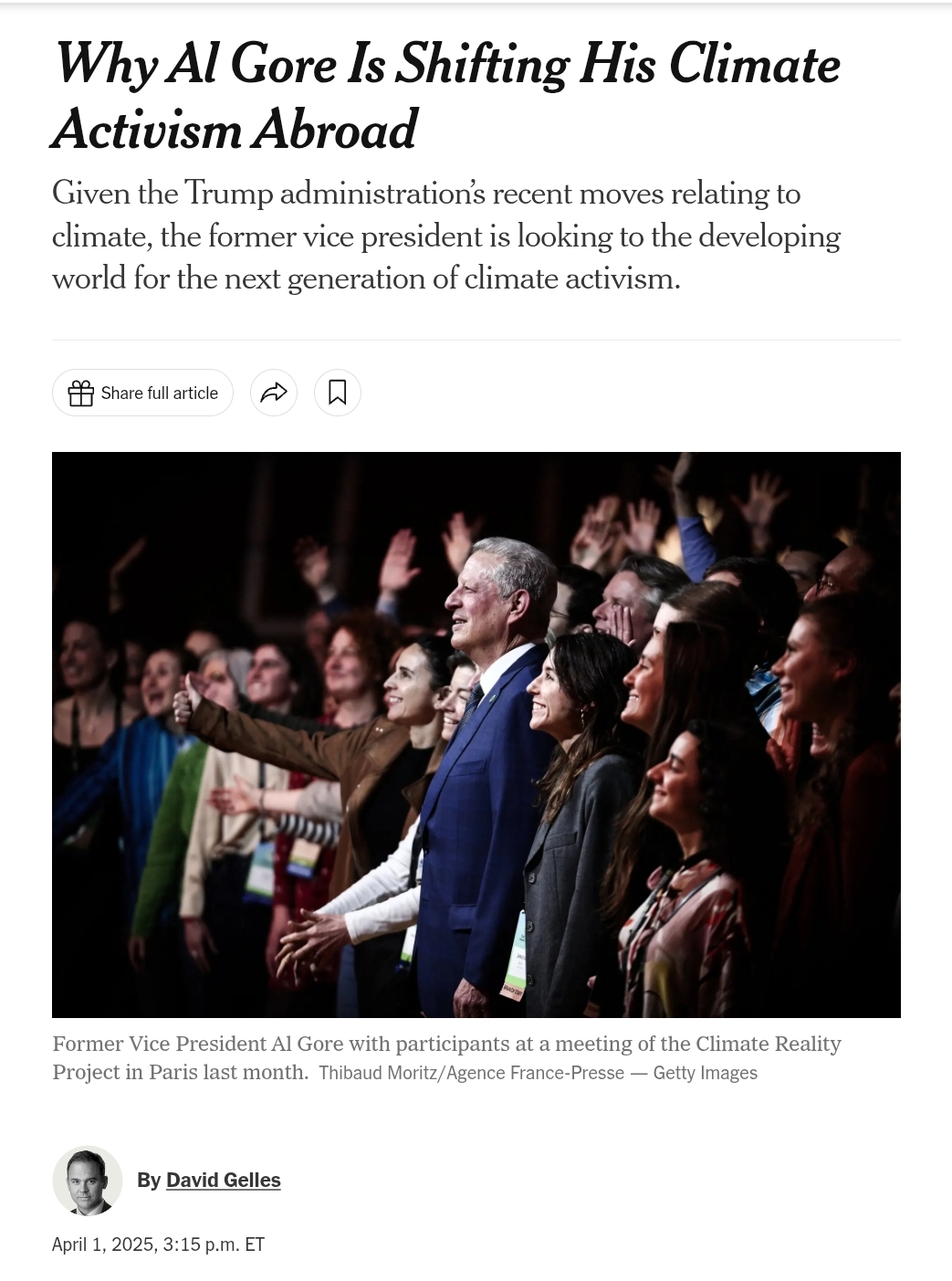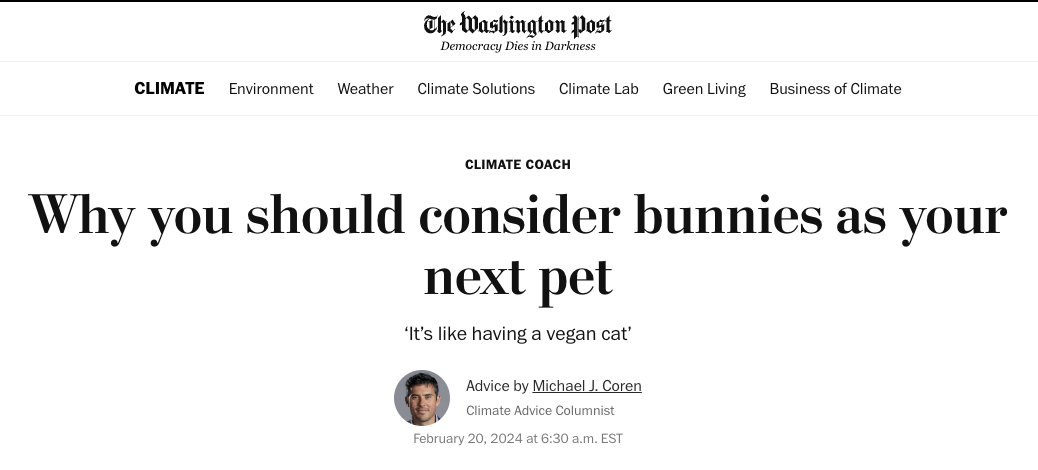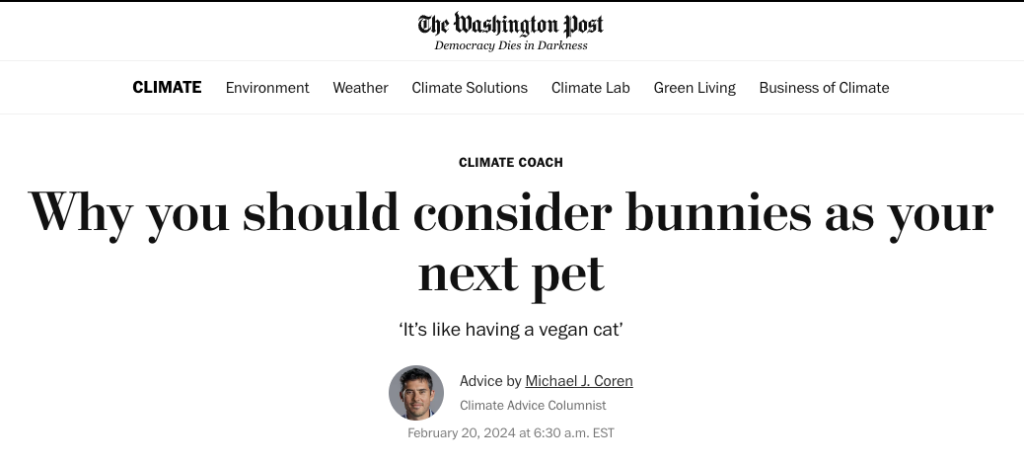


Rabbits, by contrast, leave a minimal pawprint. They eat small amounts of hay and otherwise discarded vegetables. Their waste can be used as fertilizer in gardens. ... In contrast, most cat and dog kibble is roughly 50 percent animal protein, accounting for around 1.5 percent of global agricultural emissions, according to a 2020 study in Global Environmental Change.

https://www.washingtonpost.com/climate-environment/2024/02/20/rabbits-eco-friendly-pets/
Climate Advice Columnist
WaPo’s ‘Climate Advice Columnist’ – February 20, 2024 – Excerpt: If you have a pet in the United States, chances are it meows or barks. Of the 129 million households with pets in the country, roughly 3 in 4 have a cat or dog, according to 2021 Census data.
This dominant pet duo furnishes love and affection for millions of people, but there is an entire animal kingdom out there, largely overlooked but no less lovable, whose members tread lighter on the planet.
Rabbits, by contrast, leave a minimal pawprint. They eat small amounts of hay and otherwise discarded vegetables. Their waste can be used as fertilizer in gardens.
I ventured to the bunny rescue to see what’s it like to adopt one of the most environmentally friendly pets out there. As Americans embrace pet ownership like never before — the number of households with pets has more than tripled since the 1970s — I discovered there may be more “rabbit people” than you might expect.
…
But it’s their diet that gives them an environmental edge over cats or dogs. They eat mostly hay, which makes up about 80 percent of their diet, alongside a few vegetables and leafy greens. And the parts of vegetables humans don’t eat from carrot tops to cilantro stems? Bunny favorites.
In contrast, most cat and dog kibble is roughly 50 percent animal protein, accounting for around 1.5 percent of global agricultural emissions, according to a 2020 study in Global Environmental Change.
“All else equal, livestock drives a large part of the environmental impact of the food system,” says Stephanie Cap, a researcher from Leiden University in the Netherlands who analyzed pet emissions for the E.U.’s 1.5° Lifestyles project, “and minimizing livestock production will reduce environmental impact.”
Having a vegan pet may even improve your diet. Rudnick, the mayor, says her family is eating healthier since adopting Willow. “It forces us to always have fresh food in the house,” she laughs. “We’re definitely eating a lot more kale.”
#
WaPo’s ‘Climate Advice Columnist’ – February 20, 2024:


Rabbits, by contrast, leave a minimal pawprint. They eat small amounts of hay and otherwise discarded vegetables. Their waste can be used as fertilizer in gardens. … In contrast, most cat and dog kibble is roughly 50 percent animal protein, accounting for around 1.5 percent of global agricultural emissions, according to a 2020 study in Global Environmental Change.
Sign up to get updates.